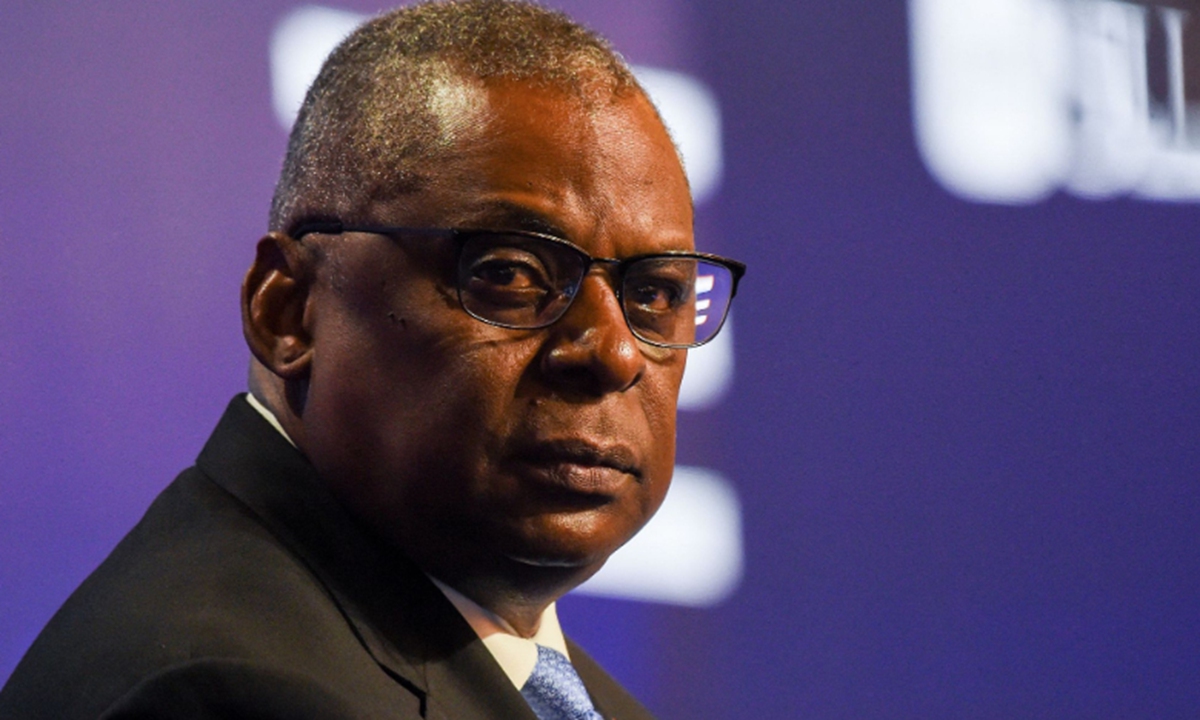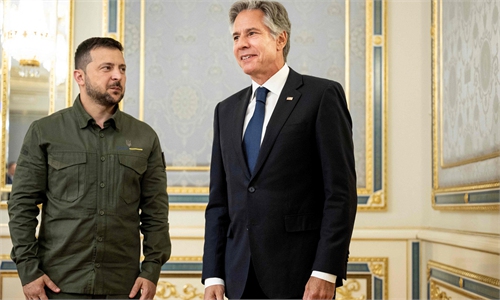
US Defense Secretary Lloyd Austin. Photo: VCG
On Monday, US Secretary of Defense Lloyd Austin visited the Ukrainian capital, Kyiv. While announcing a new US aid package, Austin also mentioned China, stating that if Russia is successful in Ukraine, China will be emboldened to use military force to expand its territory in the Indo-Pacific.Austin's visit to Ukraine has two main purposes. First, it highlights the importance and support the US places on Ukraine, demonstrating that the US will not completely ignore or abandon Ukraine due to the eruption of the Israel-Palestine conflict. Second, despite the absence of geopolitical conflicts similar to those in Europe and the Middle East in the Asia-Pacific region, Austin still mentions China and the Indo-Pacific region. His intention is to remind allies not to focus solely on the Middle East and Europe but also to pay attention to Central Asia and the Asia-Pacific region, emphasizing that China remains a challenge that cannot be ignored.
This reflects the US' persistent strategic thinking of great power competition, as it considers China and Russia its main strategic competitors, with China taking a more prominent position, Sun Xihun, an associate research fellow with the National Institute of International Strategy at the Chinese Academy of Social Sciences, told the Global Times.
The new security package for Ukraine totaling $100 million is one of the smallest packages yet. On the one hand, the US is currently facing the apparent difficulty of being unable to rally its allies to support Ukraine. Therefore, it aims to demonstrate some level of support for Ukraine by increasing such a new military aid plan, preventing Europe or Ukraine from feeling neglected or abandoned. On the other hand, the current US assistance to Ukraine is limited both politically and militarily. In the US' foreign policy, Israel, embroiled in the Israel-Palestine conflict, holds a relatively higher position compared to Ukraine. Therefore, aid to Israel takes precedence. As for the urgently needed artillery shells for Ukraine, the US has previously diverted aid-bound artillery shells intended for Ukraine to Israel, further highlighting an unbalanced situation of prioritizing one over the other.
While China-US relations have just stabilized, resuming high-level military communication, the US and the Philippines began a three-day joint maritime and aerial patrol in the South China Sea on Tuesday. The recent three-day joint patrol indicates that the US still hopes to escalate the South China Sea issue into an international hot topic and transform the disputes between the countries in the South China Sea into international disputes.
However, it should be noted that every meter the US military approaches China in the South China Sea increases the possibility of a crisis between the two countries, which also moves in the opposite direction to stabilizing bilateral relations, said Lü Xiang, a research fellow at the Chinese Academy of Social Sciences.
This also reflects to some extent the political turmoil within the US, illustrating the challenges the US faces in handling China-US relations. In recent years, there has been insufficient coordination among various US government departments.
This lack of coordination gives the impression that the US is inconsistent in handling China-US relations. Understanding the overall situation of the relationship between the two countries requires not only the consensus of the two leaders but also the coordination of different departments and institutions within each country. This will promote both countries to move toward each other and gradually stabilize and ease bilateral relations.

